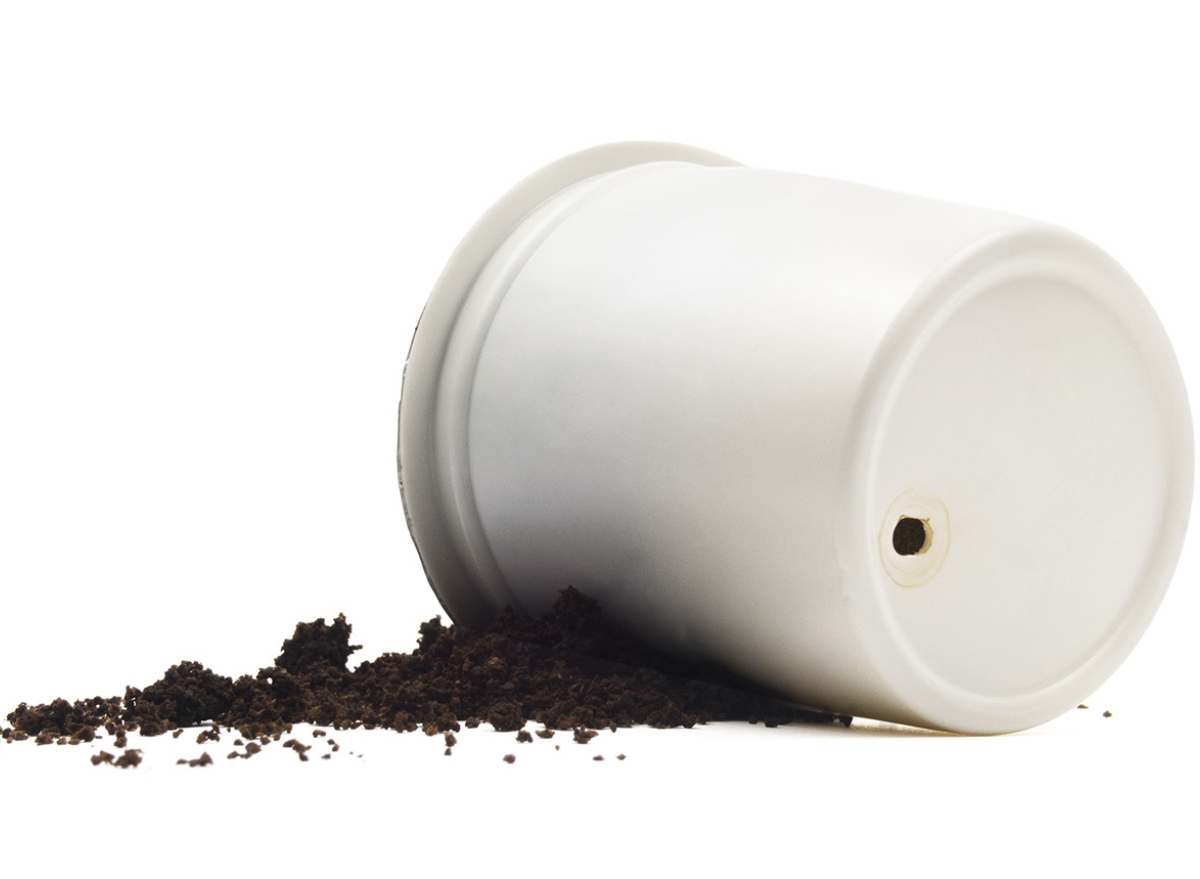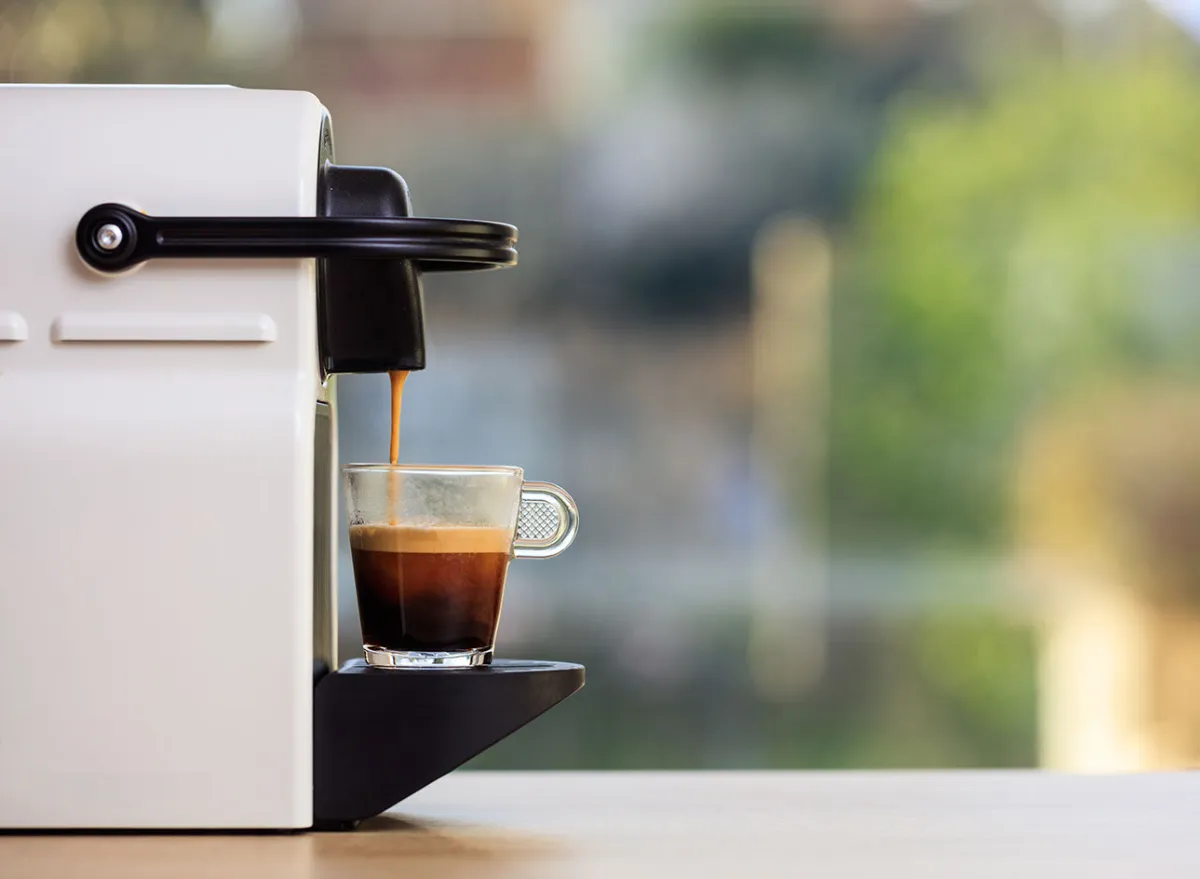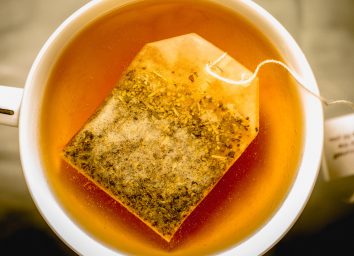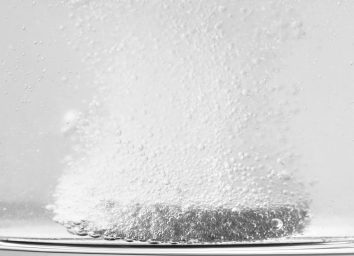The Final Verdict on Whether Coffee Pods Are Bad for You, Expert Says

If you use a single-cup coffee machine, here's an interesting update. A biomedical scientist is sharing some wisdom about a study that recently found trace levels of hormone-disrupting chemicals in coffee brewed from plastic pods. As it turns out, says this scientist, there's simply an important understanding for you to keep in mind before you hit that "Brew" button.
Keep reading to find out what may actually be going on inside your coffee cup—and, don't miss another intriguing new study: Turns Out, Diet Soda May Actually Make You Gain Weight.
A 2020 study found coffee pods have "estrogenic activity"

The stay-at-home lifestyle of the pandemic may have caused some coffee drinkers to put more time into preparing their brew each day. Even so, December 2020 figures from the consumer data firm Statista suggest that 27% of Americans still enjoyed their single-use coffee maker last year.
Meanwhile, last May, a team of nutrition and engineering scientists at the University of Connecticut conducted an experiment with the same plastic coffee pods that many people use on a daily basis. In an abstract published in Current Research in Toxicology, the researchers concluded, "All capsule coffee samples possessed estrogenic activity."
According to research like this 2011 study, estrogenic activity occurs when chemicals mimic or otherwise adversely affect the body's naturally occurring hormonal process. Health problems that have been associated with this effect are increased rates of cancers (such as some types of breast, ovarian, testicular, and prostate cancer), early puberty onset in children, obesity, reduced sperm count, and dysfunction of some sexual organs.
You can read more about these researchers' intriguing coffee pod research here.
Sign up for the Eat This, Not That! newsletter.
So, What's Up in Your Cup?

In recent months, the study's lead researcher, Ock Chun, Ph.D., MPH, confirmed to Eat This, Not That! in a phone discussion that her team did observe, as they reported in their abstract, that "coffee brewed from capsule machines may contain estrogenic chemicals migrated from plastic."
However, Chun said, their research remained ongoing, and she explained: "We are exposed to these chemicals from everywhere these days." That can include food packaging and even the paper some shopping receipts are printed on.
A Biomedical Scientist Weighs In

Jacob Yount, Ph.D., is a biomedical scientist and Associate Professor in the Department of Microbial Infection and Immunity at The Ohio State University's College of Medicine. Though Yount's current research focuses primarily on viral illness, he was able to bring some interpretation to this more endocrinologically focused research on the effect of coffee pods.
In an interview with Eat This, Not That!, Yount says that based on the data that was reported by the researchers in the coffee pod study, the activity of the estrogen-like chemicals in the coffee pods is 10 million times lower in magnitude than actual estrogen. When asked whether or not this amount would yield a real biological effect on humans, Yount shared: "My take is that it would be pretty minimal."
Yount also says that in order to determine what degree the body might absorb estrogen through the digestive system, it's important to first discover whether or not estrogen can pass through the intestines.
A Final Note

Still, it might not hurt for all of us to pay attention to how much food and drink we're consuming from plastic packages and containers, Yount says. On the subject of hormone disruption from coffee pods, in particular, he gives an encouraging send-off: "I feel like it would have to be more than one a day."
For more of the latest on food and your health, keep reading:
- 16 Vitamins That are a Waste of Money, Say Experts
- One Major Effect Coffee Has on Your Liver, New Study Says
- Health Habits Experts Warn You Should Avoid if You're Over 50
- This Chemical Found in Groceries Kills More Than 90,000 People Every Year, New Study Finds








